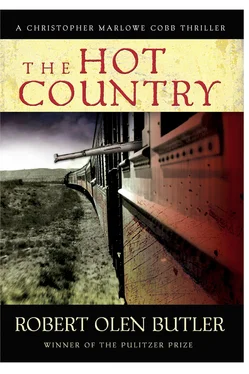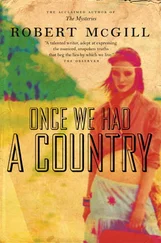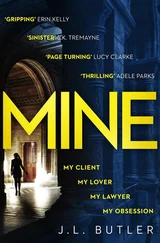I closed my door and I sat down at my desk and I rolled a piece of paper into my Corona Portable Number 3. I typed my byline. Christopher Cobb . And the lead came easily: If you invade a country with a tyrant for a president, you make some new friends but you also make some enemies. The streets of Vera Cruz have felt the wrath of a lone sniper in the first week of the U.S. occupation, and she’s angry at just about everyone. Yes, it’s a woman. And she’s a crack shot.
And I did my eight hundred words and I told Luisa’s story, though I didn’t name her, and I was lucky the next morning over coffee, before I headed to the censor and the telegraph, to hear from Bunky about the shooting of the Navy man. The Bluejacket gave me three examples instead of two, which was a great deal better. And the victim broadened the targets of her anger to explicitly include Americans, which I was already suggesting in the lead. I realized I’d written that lead knowing more than I could say in the story. The pistol to my temple and the lecture by candlelight. The encounter beneath the streetlamp.
I finished the story at my table in the portales, writing it directly onto cable blanks, and it was a perfect ending, the Bluejacket’s backside. I wrote it as it was, though I knew Clyde would euphemize the redlight district for our family readers, perhaps even so much that it would be unrecognizable to anyone other than a fellow newsman. No matter. The more immediate problem was the Army censor. But there was nothing about troops in the story, nothing strategic or even tactical revealed, and I figured the political subtleties hadn’t made it onto the forbidden list yet. There was always a little time before those refinements occurred.
And I was right.
The next morning, it went through without a cut.
And I ended up, in exchange, with a telegram from New Orleans. That was quick. This is a wondrous electrical age we live in.
I didn’t open it right away. I returned to the portales, as I’d promised Bunky, who was spending more and more time there. But the most pressing reason I headed back to the Diligencias was that I expected the enterprising young Diego to show up soon. I had an important job for him.
I sat down with Bunky, and he had already shifted from coffee to beer. He was starting light with El Sol, but there was still a long way to go, even till noon, and he’d be picking up the pace, moving on to serious drinking. I was about to call him “Pops” and tell him to slow down, but both those things were a mistake with him, so I kept my mouth shut for the moment, and I dropped into the flow of his talk when he turned his face to me and asked me a direct question. “You know who the first war correspondents were?”
“Russell and some of the others in the Crimea?” I said.
“Ancient,” Bunky said. “Try the Peloponnesian War. Those boys that ran between the battlefield and the brass for the Greeks and the Spartans. They were really the first. And you know what happened when their audience didn’t like the news? The real news, the real truth? They’d kill them. Kill the messenger. Kill the newsman. Same thing.”
He looked sharply away from me.
“You okay, Bunk?” I asked.
He didn’t answer.
If he went back to the beer and clammed up, I’d read what Mother had to say. He was keeping quiet and I was reaching into my pocket for the cable. But now I saw Diego coming up Independencia and I left the telegram where it was. Diego noticed me. He brightened and sped up.
“I’m okay,” Bunky said.
I looked at him. He still had his face turned away from me, watching the street with a little slump to his shoulders.
“I don’t want to have to worry about you, B. F.,” I said. “If the snaps aren’t holding your interest, let’s get you back to reporting.”
He acted like he didn’t hear me. Maybe he didn’t.
And Diego pulled up beaming in readiness before me.
“ Mijo, ” I greeted him. My son . Casual. Like “sonny boy.”
His head snapped a little in surprise and his smile flared even brighter.
“You been picking pockets this morning?” I said.
He put on a pout and shrugged his shoulders. “Only the Americans,” he said.
“I’m an American.”
“Only the Americans who deserve it,” he said.
And he shocked the hell out of me by climbing up on my lap.
He was terribly thin. I realized this for the first time. A small bag of bones on my lap. He threw one arm around my neck like we were old pals drunk on a sidewalk somewhere.
“You in the process of picking my pocket?” I said.
“You don’t deserve it.”
“You’ll get it from me anyway.”
“I’d rather work for it,” he said.
“Picking pockets is work.”
He laughed. “I’d rather do secret stuff.”
I glanced at Bunky and he’d turned his head to watch us. I couldn’t figure out his expression. In all his writing and all his talk, he was a put-it-out-there-straight kind of guy, B. F. Millerman. I’d never sensed a shred of irony in him. But I’d swear this look was ironic. Maybe it was me without a father fussing after childless Bunky like he was my old man while this Mexican kid sat on my lap like he was mine and with Bunk the de facto grandfather forced to look on when he’d rather just drink beer at nine in the morning. Maybe that was enough to make a plain-facts newsman find his hidden sense of irony.
Diego still had his arm around my neck and was patiently waiting for an assignment.
And for all my reportorial thoroughness, I realized I was missing a piece of information. So this seemed like the time to ask for it. I looked at the boy in my lap. “What’s your last name?” I said.
He had his own sense of irony, this kid. Irony and larceny. Before he could speak, I added, “Don’t say ‘Cobb.’”
“You don’t love me anymore, Papi ?” He said it with a straight face and then he laughed.
His calling me Spanish for Pops was one thing too much, after all this. I grabbed him up under the arms, though gently, and I lifted him off my lap and stood him before me. Even when I’d withdrawn them from him, my hands still felt the stark boniness of his ribs.
“Okay. Okay,” he said in English.
“Time to get serious,” I said in Spanish.
“You bet,” he said in English.
“You’re my employee, right?” I said.
“You bet.” Again in English.
“So first, I want to know who you are.”
“Your employee,” he said, speaking Spanish now.
“Name.”
“Diego. This you already know.”
“Full name.”
“I am Diego Cordero Medina Espinoza.”
“You’ve got four names.”
“You can call me that if you like.”
“I don’t think so.”
“Hey,” he said, imitating me, flapping his fingers at the street. “Diego Cordero Medina Espinoza, my employee, come here to me.”
“Diego,” I said. “Pay attention.”
He turned to me. But he was not ready to let all this go. “And you,” he said. “You are my employer. I want to know who you are.”
“You know my name.”
“Only two of them. Who are you?”
“Christopher Marlowe Cobb.”
“Only three?”
“That’s plenty.”
“Christopher Marlowe Cobb,” he said, grandly.
“Call me ‘Kit,’” I said.
“Kit?”
“Kit.”
“That’s very small,” he said.
“Like the point of a very sharp knife,” I said.
Diego Cordero Medina Espinoza laughed.
“Serious now,” I said. “Business.”
He wound the laugh down and waited.
I looked around. The nearest reporter was Davis in his usual spot, out of earshot several tables away, writing furiously onto cable blanks.
Читать дальше












